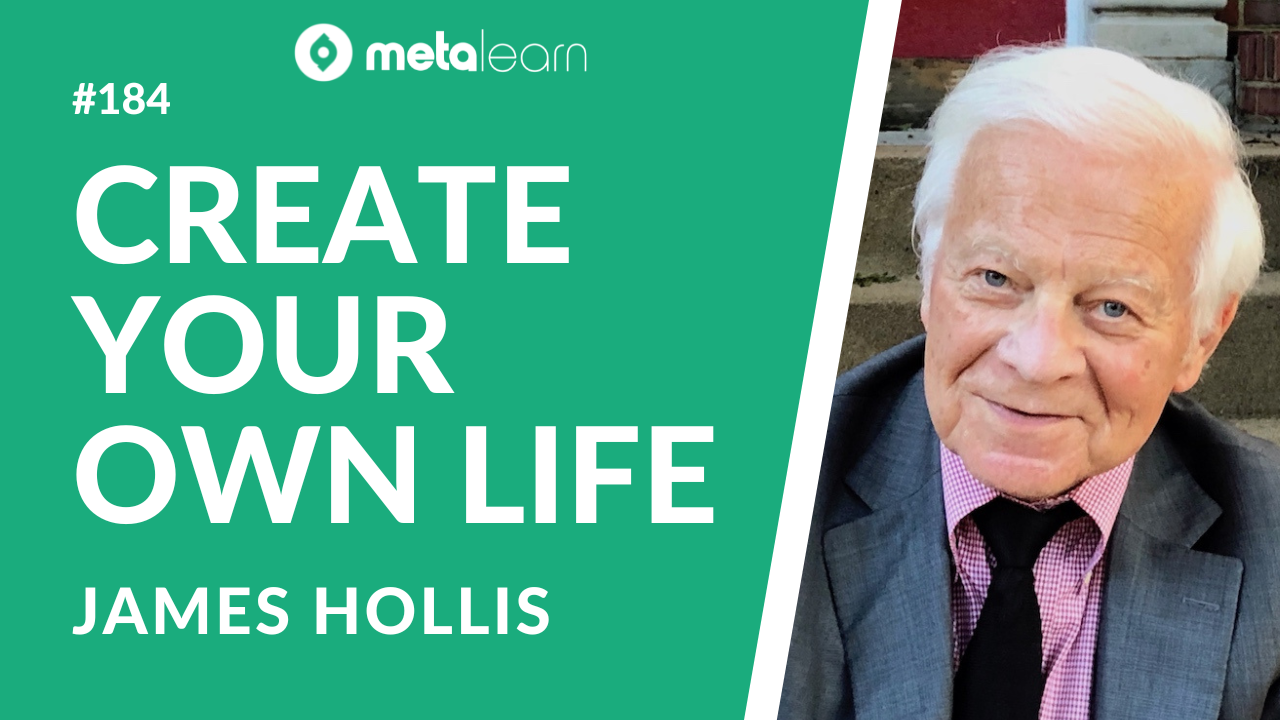ML184: James Hollis on Creating The Life You Want, Lessons from Jung and Understanding Your Mind
Discover how to deal with competing desires and overcome paradoxes, the meaning of Jung’s big ideas like the shadow and how to truly understand yourself to create the life you want.

James Hollis is Jungian analyst and author of 16 books, including his latest work Prisms and Living Between Worlds. He is the Executive Director of the Jung Educational Center in Houston and was previously a professor of the humanities for 26 years.
The big questions in life are the hardest ones to answer and always will be.
One person’s heaven is another person’s hell, so while there are common threads that seem to be important for most people - like doing meaningful work and having good relationships - you really do have to figure the big things out for yourself.
Of course, it always helps to have some guidance along the way and today’s guest James Hollis has dedicated his life to understanding the human condition and helping people find meaning through his work as a psychoanalyst and author.
In this episode we cover:
- How to deal with competing desires and transcend the paradoxes you face in life
- The meaning of Jung’s big ideas like the shadow and what they mean for you
- How James has written a book every two years for the last 3 decades and what inspires him
We also discuss James’ experience training as a Jungian analyst in Zurich, his ideas about dealing with life’s big questions. This was a wide ranging, deep conversation that will give you a fresh perspective on how to live a meaningful life – it certainly did for me.
Show Notes
- Introducing James [00:23]
- How does James remember school and when did he realise that he was good at it? [01:53]
- What was the role of their local librarian in helping shape James’ perspective of the world? [02:51]
- Why did James feel that he had to prove something to academia by writing a book? [04:44]
- What was the question that James inherited from his family? [06:23]
- How can we regard our family’s inherited questions to be productive and meaningful to our own psyche? [08:37]
- How has the value of the humanities, in academia and in our lives, changed over time? [10:37]
- What values does society need to appreciate and understand again to solve the crisis of the humanities? [00:12:27]
- Why did James decide to leave his teaching career despite the ongoing challenges modernization has posed against the humanities? [13:50]
- What implications to the human psyche did James take away from his conversations with patients in the psychiatric hospital he worked at? [15:32]
- What societal and cultural shifts gave way to the emergence of the philosophies of Freud, Adler, and Jung in the late 19th to early 20th century? [21:33]
- What was James’ experience studying union psychology in Zurich like? What role did the capital serve in his understanding of the field?
- How does James understand Jung’s concept of the shadow over time and with regard to his experience as a psychologist? [26:40]
- In what ways does the shadow manifest in our lives? [31:19]
- How does recognising our shadow help us respond to our motivations and pressures? [33:03]
- How did understanding his own shadow affect James’ relationship with his children? [35:08]
- In which instances does acting the shadow out actually improve our life and our relationships? [37:55]
- What danger is there in repressing the shadow? [39:58]
- When one finds themselves stuck or in between two opposite poles, is there a way to seek out a third element that can help solve this dilemma? [42:39]
- How does Nikos Kazantzakis’ image of Jesus as a carpenter interpret the idea of calling and our struggle to pursue it? [45:43]
- When does James feel his daemon? How does it manifest in his life? [53:24]
- How did James decide on the titles of his books and what was his thought process behind each one? [57:30]
- Closing remarks [59:30]
Resources
Follow James online
- Prisms by James Hollis
- Living Between Worlds: Finding Personal Resilience in Changing Times by James Hollis
- A Life of Meaning: Exploring Our Deepest Questions and Motivations by James Hollis
- Living an Examined Life: Wisdom for the Second Half of the Journey by James Hollis
- The Psychopathology of Everyday Life by Sigmund Freud

